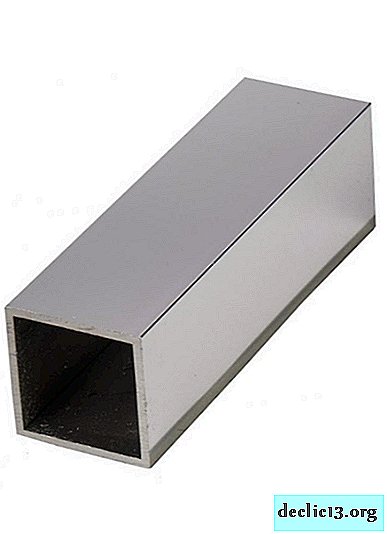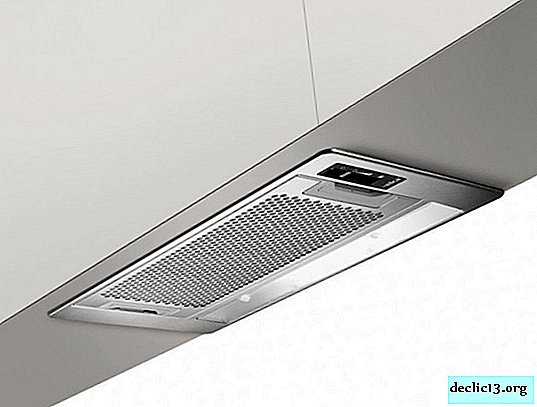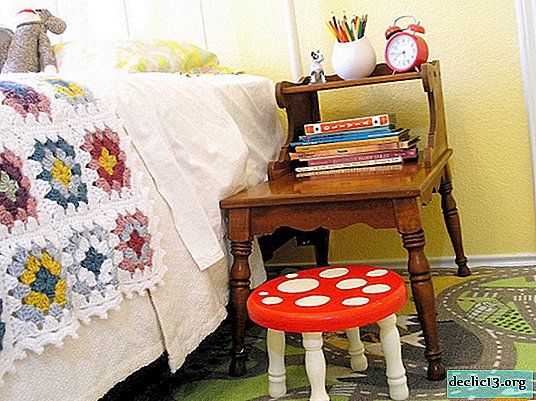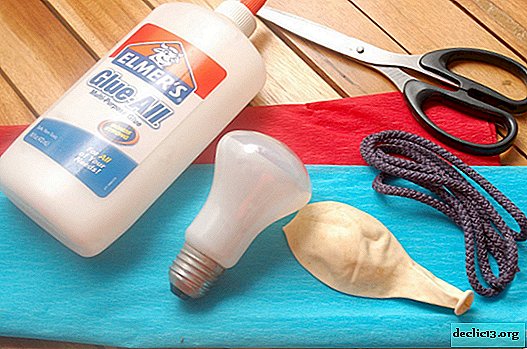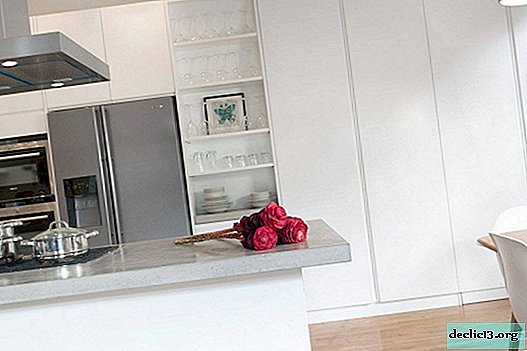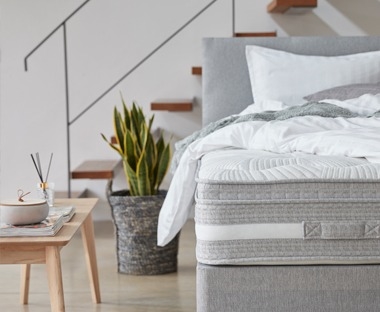Black and white bathroom: design subtleties
There is nothing surprising in the fact that this is not the first time that black and white design is becoming mega-popular not only among designers, but also their customers. After all, the monochrome interior always emphasizes the style and taste of the owners, an exquisite approach to the design of their own homes. Perhaps this is due to the fact that achieving a balance in the interior when using two diametrically opposite colors is very difficult. Creating a harmonious image of such a multifunctional room as a bathroom using a monochrome is difficult, but possible (with the tips of designers who have been honing their skills for many years). We bring to your attention a large-scale selection of 100 ideas for decorating a bathroom in black and white and hope that it will inspire you to create your own unique design project.
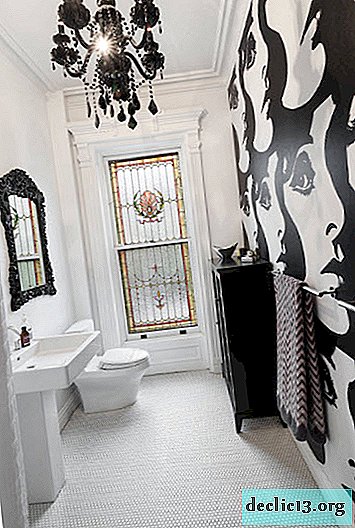
Black and white tones - the attraction of opposites
Black and white tones located on opposite edges of the color spectrum have long attracted designers from all over the world. And not just because "opposites attract." Monochrome design always attracts attention, it blows from it in style, luxury and sophistication. But provided, of course, that the balance between the dark and light side of the image of the room has been successfully maintained. You can also spoil the interior with incorrectly placed accents, the dominance of black in a room with insufficient lighting and even the wrong choice of shades of black and white, because these colors have many variations.



For centuries, a combination of black and white colors has been used by designers around the world to create exclusive images filled with courage and luxury, sophistication and even drama. Finding the right "dosage" of dark and light tones is not easy, but if the combination is successful, then the interior will attract admiring glances for a long time, because the monochrome design is always in trend.


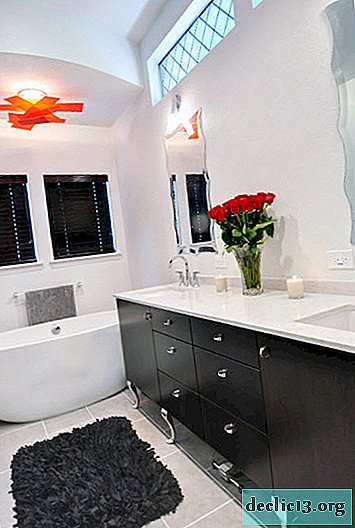

So, why does a black-and-white interior periodically become a very popular option for arranging a wide variety of rooms and utilitarian ones as well? What associations arise when two interacting opposites - black and white? Man and woman, yin and yang, day and night, light and darkness. Or maybe a zebra or a chessboard, an old cinema or a business style? Whatever the promise to use black and white themes in the design of a bathroom, a harmonious alliance can be created only by carefully weighing the room's capabilities (shape, size, layout) and your personal vision of monochrome aesthetics.



Subtleties of bathroom decoration in black and white colors
It will not be superfluous to recall that the white color is able to visually expand the boundaries of the room, “smooth out” imperfections in architecture and decoration, erase asymmetries or hide imperfections. With black, things are exactly the opposite - its abundance can create an oppressive mood, visually reduce the room, emphasize the unsuccessful areas of the room. That is why it is so important to correctly place accents in the interior - underline what is necessary, and hide inappropriate.



The smaller the area of the room, the lower its ceiling, the more white color should be present in its design. Black tone can only be used to emphasize the perfect shape, beautiful plumbing, original accessories. A black and white print is better to use in small sizes, not too colorful and used only to focus on any surface. Even small, fragmentary black spots on a white background produce a stunning effect, changing the image of the room beyond recognition. To help design small bathrooms come mirrored and glossy surfaces, transparent glass inserts and partitions. In the fight for the visual expansion of space (since there is no way to physically increase the room), all means are good.




In utilitarian spaces of medium size, black can already be used more actively. For example, the use of dark color for finishing floors in combination with the transition from black to white on the walls (using print or decor) and the predominance of light colors in the upper part of the room leads to a visual increase in the height of the ceiling.



In really spacious bathrooms, using black color, you can decorate not only individual parts of plumbing, storage systems or print them on a white background, you can use this dramatic and austere tone to decorate entire surfaces, perform large interior items - plumbing fixtures, accessories, cabinets.




Ceiling
The standard version of the ceiling is not only in the bathroom, but in most rooms of any dwelling - a snow-white, perfectly flat and smooth surface. This result can be achieved in various ways - from a stretch ceiling to painting moisture-proof drywall, from using plastic panels to decorating with liquid wallpaper or decorative plaster. Obviously, the white color of the surface allows you to visually create an increase in the height of the room, to maintain a bright and spacious image, even in a room with a small quadrature.


Glossy surfaces will help enhance the effect of using white to decorate the ceiling. For example, a stretch ceiling in a glossy design not only looks spectacular, but also helps to hide all the flaws of structures and finishes, hide communications. Even the ceiling in the performance of white-tone plastic panels will look respectable if you decorate it with a plinth or molding with silver or golden inserts. Repeat this technique to create a harmonious image will be possible in the performance of accessories for plumbing or storage system facades.


Walls
The main task of those who plan to use black and white to decorate the bathroom is to find the optimal combination of the two opposites of the color spectrum. And it does not matter whether you have to solve this dilemma yourself or resort to the help of specialists. It is important to remember that for any quadrature of the room, white should remain dominant. Indeed, no one wants to get an image of an expensive, but dark cave instead of a luxurious and comfortable bathroom.


When creating a bathroom decoration with a monochrome design, there are two design options:
- sharp transition from dark to light;
- smooth combination of halftones (mainly due to the use of print).



If with the first option everything is more or less clear - the dark surface of the floor is replaced by a snow-white decoration of the walls (the ceiling, subject to a sufficient height of the room, can also be executed in black), then with a smooth transition, not everything is so simple. There are many ways to decorate and decorate walls using only two tones - dark and light.



A geometric print is very popular, in our case with the use of black and white colors. The sharpness of the image, the severity of lines and shapes bribes the active use of tiles, panels or moisture-proof wallpaper with a geometric image, not only for accent surfaces, but also for the decoration of all bathroom walls.





Black and white stripes are another universal option for decorating walls in a monochrome bathroom. It is obvious that vertical stripes will help visually “stretch” the image of the room in height, and horizontal stripes will increase its volume. Depending on the size of the bathroom, a “striped” print can be used both for decorating all the walls (large room) and for creating an accent surface (small bathroom).




The next most popular is a floral print, images of people and buildings, drawings in any form (it can be a tile with a print, moisture-proof wallpaper at the top of the walls and even black and white photo printing on ceramics).





Creating panels by combining tiles with other materials or combining different modifications of one type of finish is a popular technique when designing not only monochrome rooms. In this case, the panel can be created in various ways. One of the most commonly used options is a contrasting combination. The panel is dark and the top of the wall is light. Glossy "metro" tiles with snow-white grout look spectacular. This technique, among other things, in combination with dark flooring, helps to visually increase the height of the room.



In spacious rooms with a high ceiling, you can use the reverse combination - light panels and dark wall decoration in the upper part.




In small rooms, you can only dwell on the outline of the panels, using white for the upper and lower parts of the wall decoration, but with different textures or from different materials.



No less popular are decorative inserts on the light walls of monochrome bathrooms. It can be either vertical stripes with decor (perfectly visually increasing the height of the premises), or a kind of panel made of tiles or mosaics with a pattern and decorative elements.

Floor
It is in the monochrome design of the bathroom that the floor often becomes an accent surface. The reception, in which the flooring appears as an alternation of black and white fragments, along with the snow-white execution of the remaining surfaces and plumbing, is a popular way to design small utilitarian spaces. This approach allows not only to visually increase the volume of the room, to distract attention from possible imperfections in its upper part, but also to create creativity at the lowest cost, using the original design of the floors.





Plumbing for a monochrome interior
Most models of modern plumbing have a white color. Obviously, to emphasize the beauty of the forms or the original design of plumbing devices, they must be placed on a dark background. But not everything is so simple. In small rooms, for example, it is not possible to actively use black color to emphasize the whiteness of plumbing.


Plumbing looks beautiful, the facade of which is highlighted in black. This can be either a unique model of a sanitary ware, or a facade cladding that you created - using ceramic tiles or panels of the corresponding color.
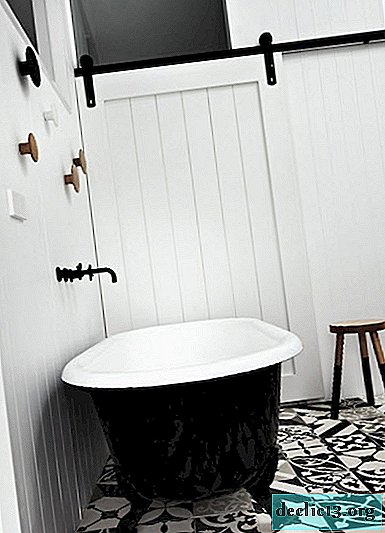
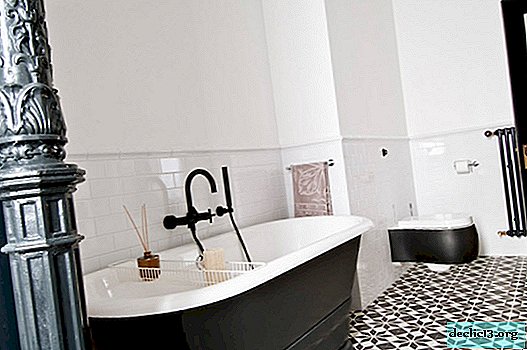



Storage systems, decor and accessories
If we are talking about creating a design for a small utility room, it is obvious that white will be used to design most surfaces. The dark accents in this case are most often storage systems (facades of stands and cabinets, open shelves), accessories for plumbing and decorative elements:
- frames for mirrors;
- various holders;
- decorative inserts in the decoration;
- if there is a window in the bathroom, then the frame (as well as the door trim) may be a dark accent.





Even in spacious bathrooms, it is often storage systems that play the role of a dark spot, eye-catching ...


And finally: for those for whom monochrome combination is not enough to create the desired image
If you feel that using only two, albeit diametrically opposed, color solutions is not enough for you, then the easiest way to dilute monochrome is to integrate wooden surfaces. In a black and white design, the inclusion of a beautiful natural wood pattern will help to bring a touch of warmth and coziness to a strict look. At the same time, it is not so important what exactly it will be - the facade of the storage system or a frame for a mirror, a decorative element or a towel holder.



If, however, the introduction of wooden surfaces and elements into the black and white interior of the bathroom is not a sufficient measure, then we bring to your attention the ways of diversity of the image using various shades of blue - a fresh, but at the same time strict combination of a modern room for water procedures ...



And a similar approach to diluting monochrom using a neutral color scheme - shades of gray ...









